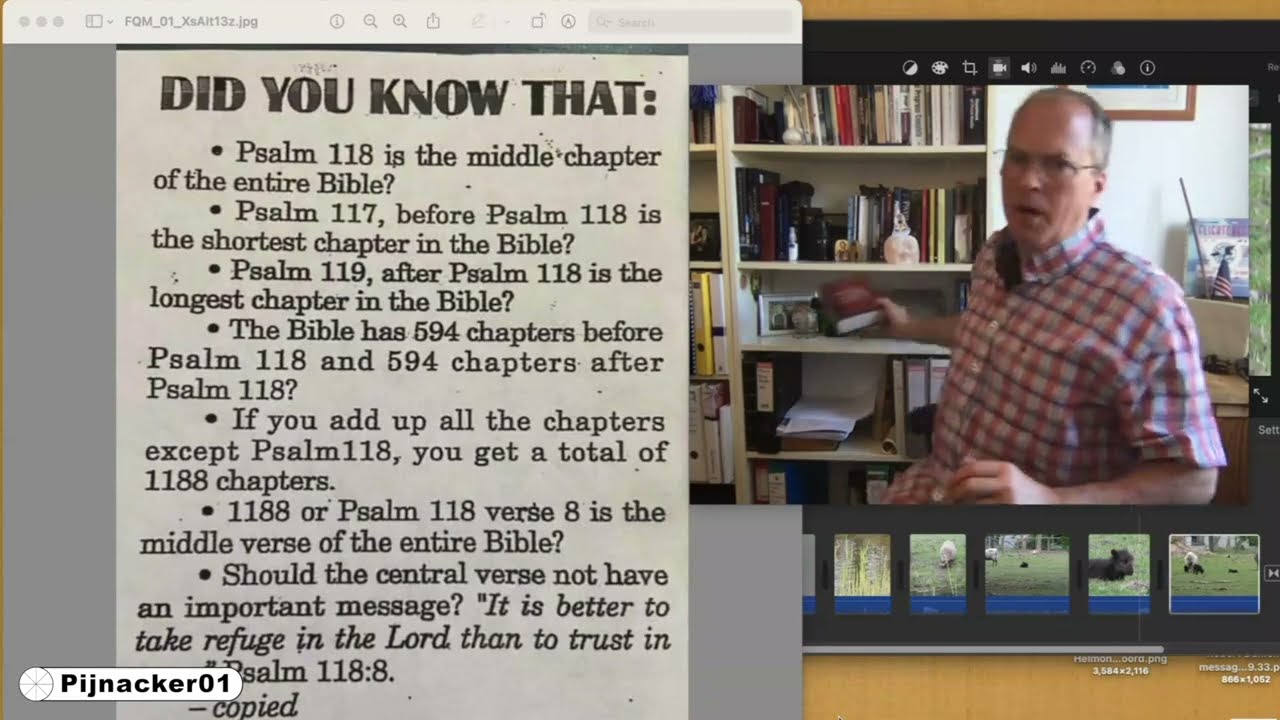Have you ever wondered what the middle chapter of the Bible is? Many people believe that Psalm 118 holds this significant position. In this blog post, we will delve into the intriguing question of whether Psalm 118 is indeed the middle chapter of the Bible, exploring its historical context, relevance, and potential impact on our understanding of the Scriptures.
Understanding the placement of Psalm 118 as the supposed middle chapter of the Bible can provide us with a unique perspective on how the entirety of God’s Word is intricately interconnected. By exploring this topic, we have the opportunity to gain insight into the structure and design of the Bible, enriching our study and appreciation of the sacred text. Join us on this exploratory journey as we uncover the potential significance of Psalm 118 in the broader context of the Bible.
Unveiling the Mystery: Is Psalm 118 Truly the Middle Chapter of the Bible?
Psalm 118 is often referred to as the middle chapter of the Bible, not in terms of verses but in terms of its position when considering the total number of chapters in the Bible. The Bible consists of 1,189 chapters – 929 in the Old Testament and 260 in the New Testament. Since the total number is an odd number, there isn’t a precise middle chapter in terms of verse count.
However, when you consider the total number of chapters, Psalm 118 is indeed at the center. This psalm holds a special place in the hearts of many believers due to its themes of thanksgiving, praise, and trust in God’s enduring love and faithfulness.
Psalm 118 begins with the famous lines: “Give thanks to the LORD, for he is good; his love endures forever.” These words set the tone for the entire psalm, emphasizing the unchanging and eternal nature of God’s love and faithfulness. The psalmist goes on to declare how God has been their strength and salvation, recounting instances where God intervened on their behalf.
The middle section of the psalm focuses on the importance of trusting in the Lord rather than relying on human strength or resources. “It is better to take refuge in the LORD than to trust in humans.” These words remind believers that true security and deliverance come from placing their trust in God alone.
As the psalm progresses, it shifts towards a tone of victory and triumph, celebrating God’s deliverance and exalting His name. The closing verses of Psalm 118 echo the opening ones, reinforcing the message of gratitude and praise: “You are my God, and I will praise you; you are my God, and I will exalt you.”
Overall, Psalm 118 serves as a powerful reminder of God’s enduring love, faithfulness, and protection. It encourages believers to trust in Him completely, knowing that He is their source of strength and salvation. This timeless message continues to resonate with readers today, making Psalm 118 a cherished chapter in the Bible.
What chapter is the very middle of the Bible?
The very middle chapter of the Bible is Psalm 118. This chapter has 594 chapters before it and 594 chapters after it, making it the center chapter in the Bible.
What category is Psalm 118?
Psalm 118 is categorized as a song of praise and thanksgiving in the Book of Psalms in the Bible. It is known for its repeated refrain “His love endures forever,” highlighting the steadfast love and faithfulness of God. This psalm is often used in worship settings to express gratitude and praise to God for His goodness and mercy.
Is Psalm 117 the middle of the Bible?
Psalm 117 is not the exact middle of the Bible. The Bible has 1,189 chapters in total, and Psalm 117 is the shortest chapter in the Book of Psalms. The middle chapter of the Bible is Psalm 118, which comes right after Psalm 117.
What is unique about Psalm 118?
Psalm 118 is unique in the Bible because it contains a repeated refrain that emphasizes God’s steadfast love endures forever. This phrase is found multiple times throughout the psalm, underscoring the unchanging and eternal nature of God’s love and faithfulness. Additionally, Psalm 118 is significant because it is often associated with celebration and thanksgiving, being used in Jewish liturgical practices during festivals such as Passover. This psalm also contains a Messianic prophecy that is fulfilled in Jesus Christ, making it particularly meaningful for Christians.

